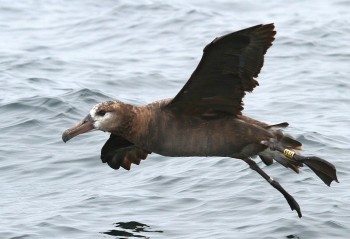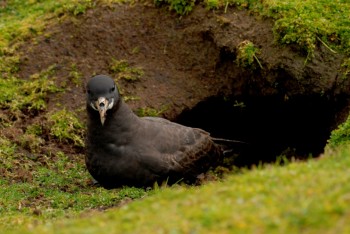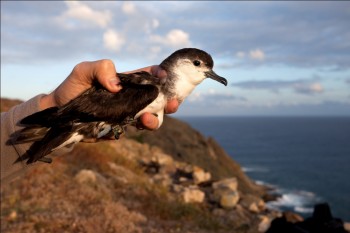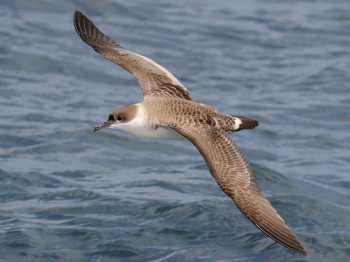Despite its small body mass (c. 700 g), with an estimated population size of 23 million individuals, the Short-tailed Shearwater Puffinus tenuirostris represents not only the most abundant bird species in Australia but the most significant avian marine predator biomass in the region, consuming in the order of 250 000 tonnes of krill, fish and squid during each summer breeding season. Its breeding distribution is restricted to south-eastern Australia, an oceanic region that is currently one of the fastest warming in the world and where currents are predicted to alter due to climate change, potentially resulting in considerable alterations in the marine ecosystem, the species’ prey populations and its impact on its terrestrial nesting habitats. Indeed, recent surveys at several colonies suggest there has been a >30% decrease in the number of breeding birds over the last 20 years, an alarming decrease with significant implications for the species’ population. However, the initial estimates of the species’ population size were based on extrapolations from surveys of a limited number of sites such that it is impossible to ascertain the exact extent of the species’ decline. Furthermore, knowledge of the Short-tailed Shearwater’s population dynamics, and the factors affecting it, is greatly lacking due to it nesting in burrows on dozens of offshore islands making assessing trends in abundance logistically difficult and prohibitively expensive. The aims of this study, therefore, are to: 1) develop an efficient, cost-effective system for the annual monitoring of Short-tailed Shearwater breeding populations; 2) develop predictive nesting habitat area-use models; 3) provide the first accurate range-wide distribution and abundance estimate of Short-tailed Shearwaters.
The project, a collaboration between Deakin University (Assoc. Prof. John Arnould) and Institute of Marine and Antarctic Science, University of Tasmania (Prof. Mark Hindell) will use a combination of field surveys, automated digital image analysis with time lapse photography, and remote-sensing GIS techniques to achieve its aims. Deadline for non-Australian applicants is 31 July 2015 and for Australian candidates is 31 October.
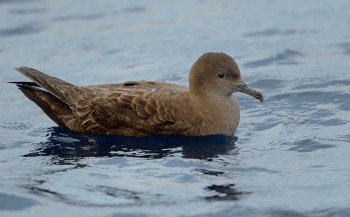
Short-tailed Shearwater at sea, photograph by Kirk Zufelt
Click here for more information.
John Cooper, ACAP Information Officer, 28 July 2015

 English
English  Français
Français  Español
Español 
